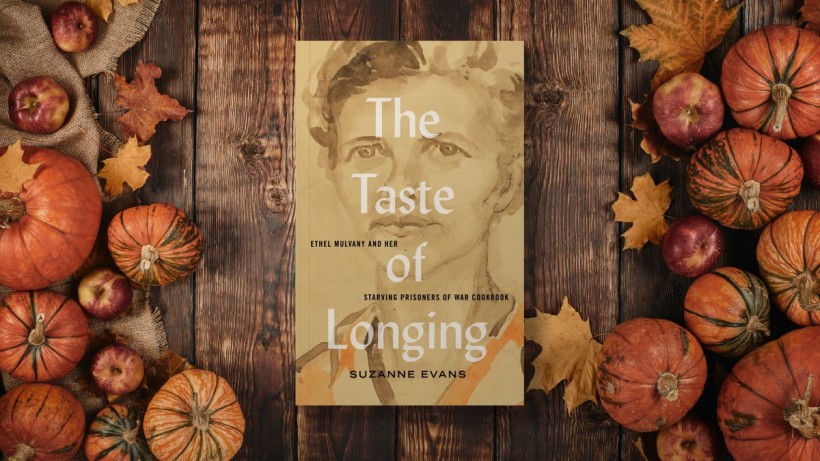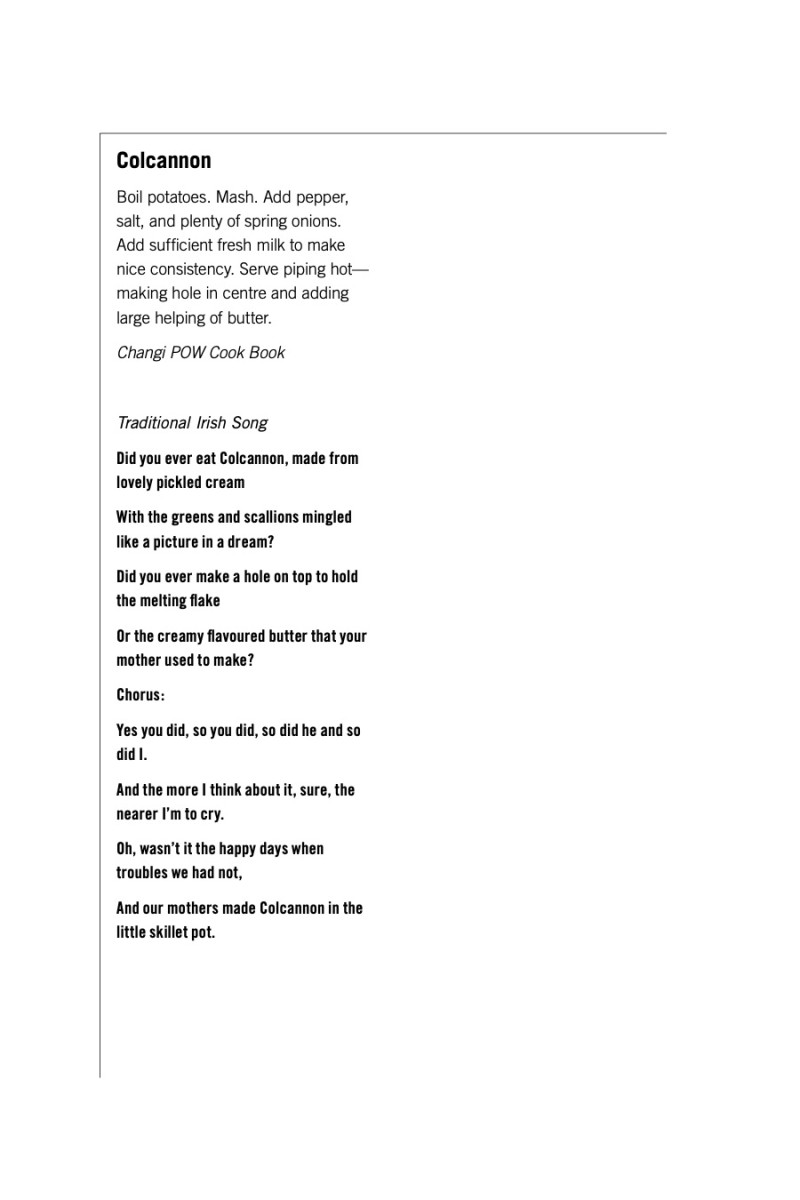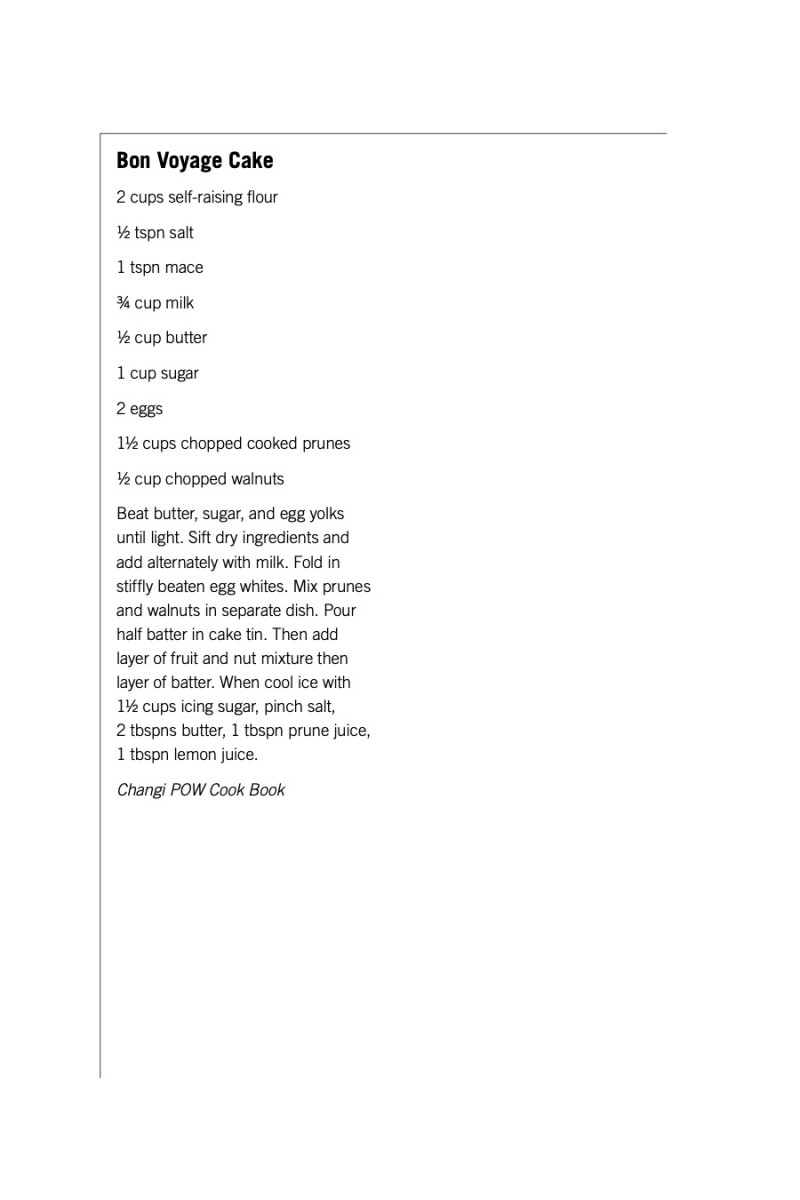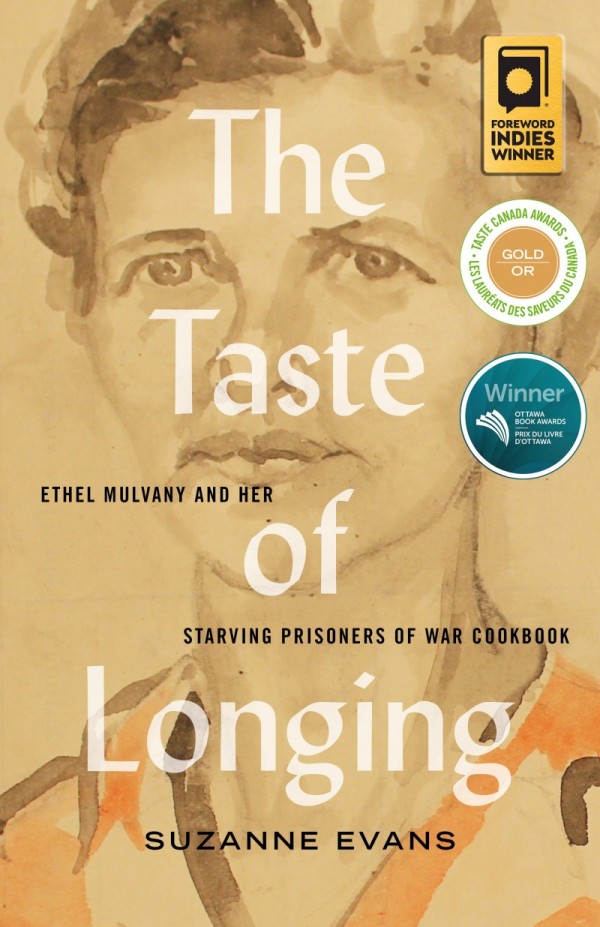“Enjoy your homes. Enjoy your food. There is nothing that can take their place.”

The Taste of Longing is on sale all Thanksgiving weekend.
When I first read through Ethel Mulvany’s collection of recipes, made by starving prisoners while they were interned in Changi Jail in Singapore during WWII, I had two reactions. I thought at first that it would be far more frustrating than pleasurable to focus so intently on foods they could only dream of eating. With a bit more thought, though, I realized that real hunger has a way of staying top of mind, no matter what the possibility of sating it is. This was true, I discovered, for prisoners all over the world during WWII. Countless recipes were discussed in loving detail, written down if there was paper, and savoured by those who were being starved, often to the point of death.
Then came my next question. When so many of the women in Changi Jail had been living for years in a tropical land of voluptuous fruits and spices, why would they have yearned for boiled cabbage, baked beans, or the following recipe for colcannon, a dish which is little more than mashed potatoes?

The answer can be found in the words of the traditional Irish song named after the dish. It begins, “Did you ever eat colcannon made from lovely pickled cream/With the greens and scallions mingled like a picture in a dream?” The affirmative response is followed with happy vignettes of school days and first loves, each concluding with the chorus: “Oh, wasn’t it the happy days when troubles we had not,/And our mothers made colcannon in the little skillet pot.”
A majority of the women prisoners in Changi who contributed to the cookbook were from the UK, Australia, Europe, and the USA. The recipes they yearned to cook reflected the simple, quotidian world of their youth, conjuring images and flavours of the security of home and family. The recipes functioned as an escape from a world that had been forever changed by the war.
I wonder if I had first come across Ethel’s cookbook during the early days of our present pandemic, would I have been quicker to understand those women’s dreams? In the early days of COVID-19, while locked up at home, many have re-examined their relationship with food. With dwindling finances, closed shops and restaurants, and food security becoming an ever-more-pressing issue, many have been creative with what is available and have dug into the past to pull up recipes for comforting dishes in trying times.
This is exactly what the starving women in The Taste of Longing did. If they could have eaten any of the foods they dreamed of, they too might have gained their version of the “COVID 15.” Just as recipes for desserts now abound on the internet, the prisoners talked about sweets, particularly puddings and cakes. Some sweets evoked hungry characters, like the Oliver Twist Cake, while others spoke plainly of the desire to leave.

Ethel Mulvany returned to Canada in 1946 with a broken marriage and few dollars to her name. She was also suffering from mental illness and a searing hatred of the Japanese. With help and a powerful will, she managed her bipolar disorder. With that same determination, she overcame the racism that she viewed as a poisonous infection. Friends, family, faith, and community were central to her survival.
I am writing just ahead of Thanksgiving. Many of us will be lucky enough to celebrate the harvest with a joint of fowl or a fatted cauliflower. The question is, who will be at the table with us on a holiday meant to be spent with friends and family? On September 23, Prime Minister Trudeau stated, “We’re on the brink of a fall that could be much worse than the spring… It’s all too likely we won’t be gathering for Thanksgiving.”
Year after year, from 1942 to 1945, the women prisoners missed being with those they were closest to on each of the holidays that punctuate the calendar. Although most of the Changi women would not have celebrated Thanksgiving in their home countries, there is an addition to the POW cookbook that is reminiscent of a slender version of our traditional holiday fare. While the hungry contributor’s name has been lost to history, the sentiment she conveys speaks through time. With no list of ingredients or even a mention of a method, it hardly counts as a recipe, more a naked statement of longing:
“With Fried Chicken – Serve small potatoes, green peas and mushrooms.”
Prisoner of War Cook Book
Ethel ends the introduction to her cookbook with a timeless directive, “As from one Canadian who survived the horrors of war and prison camp, may I just say, ‘Enjoy your homes. Enjoy your food, there is nothing that can take their place.’”

